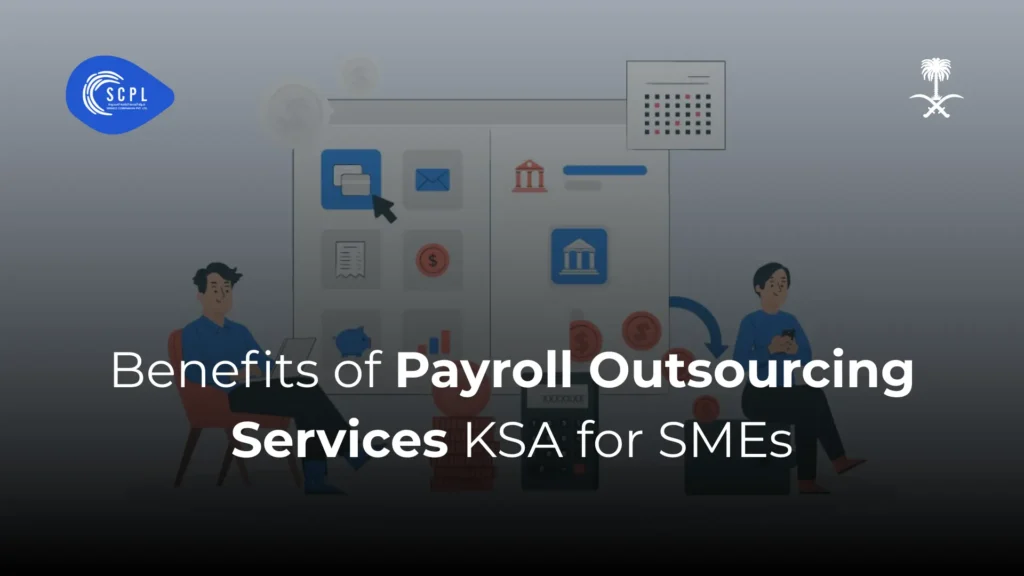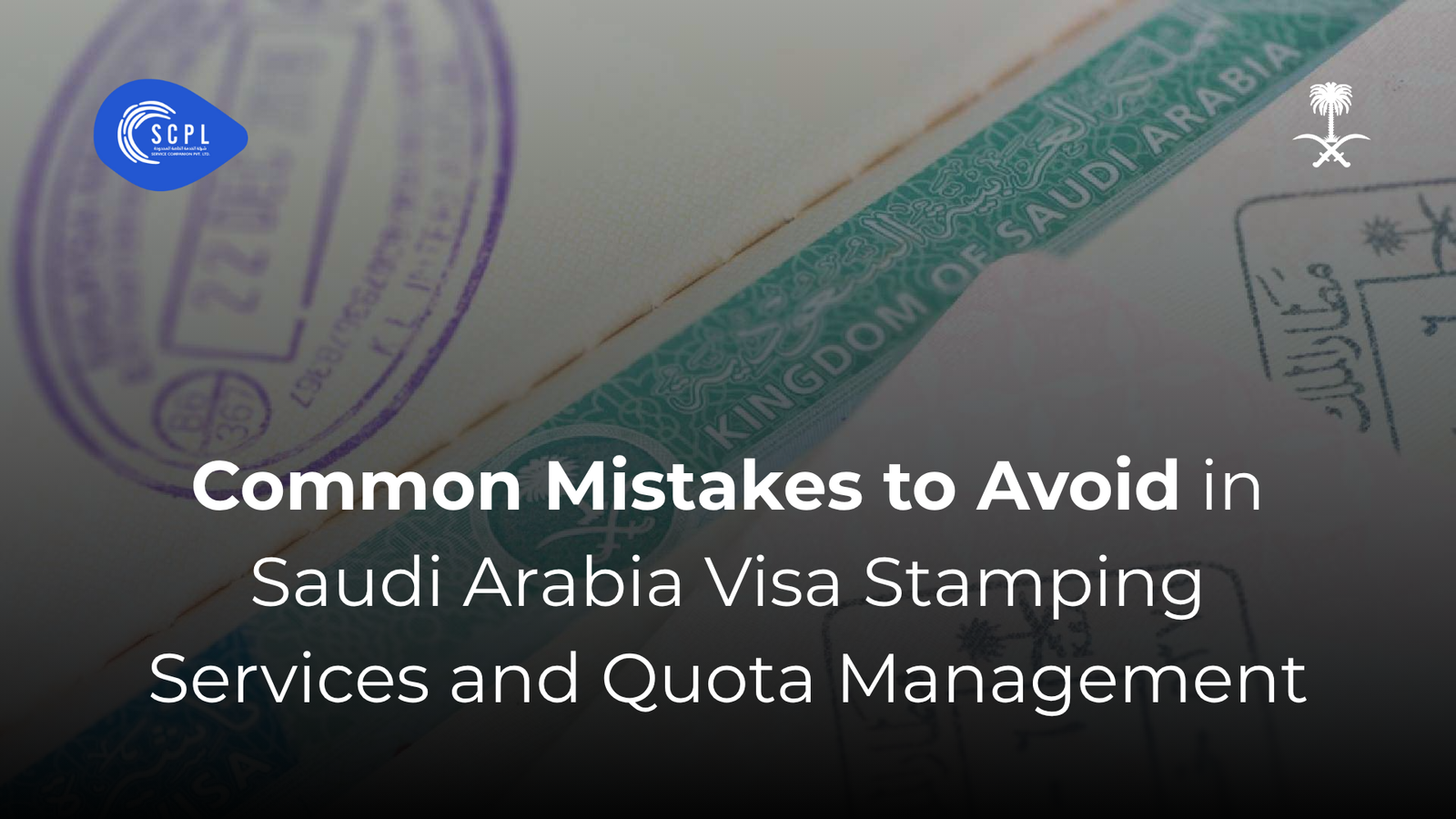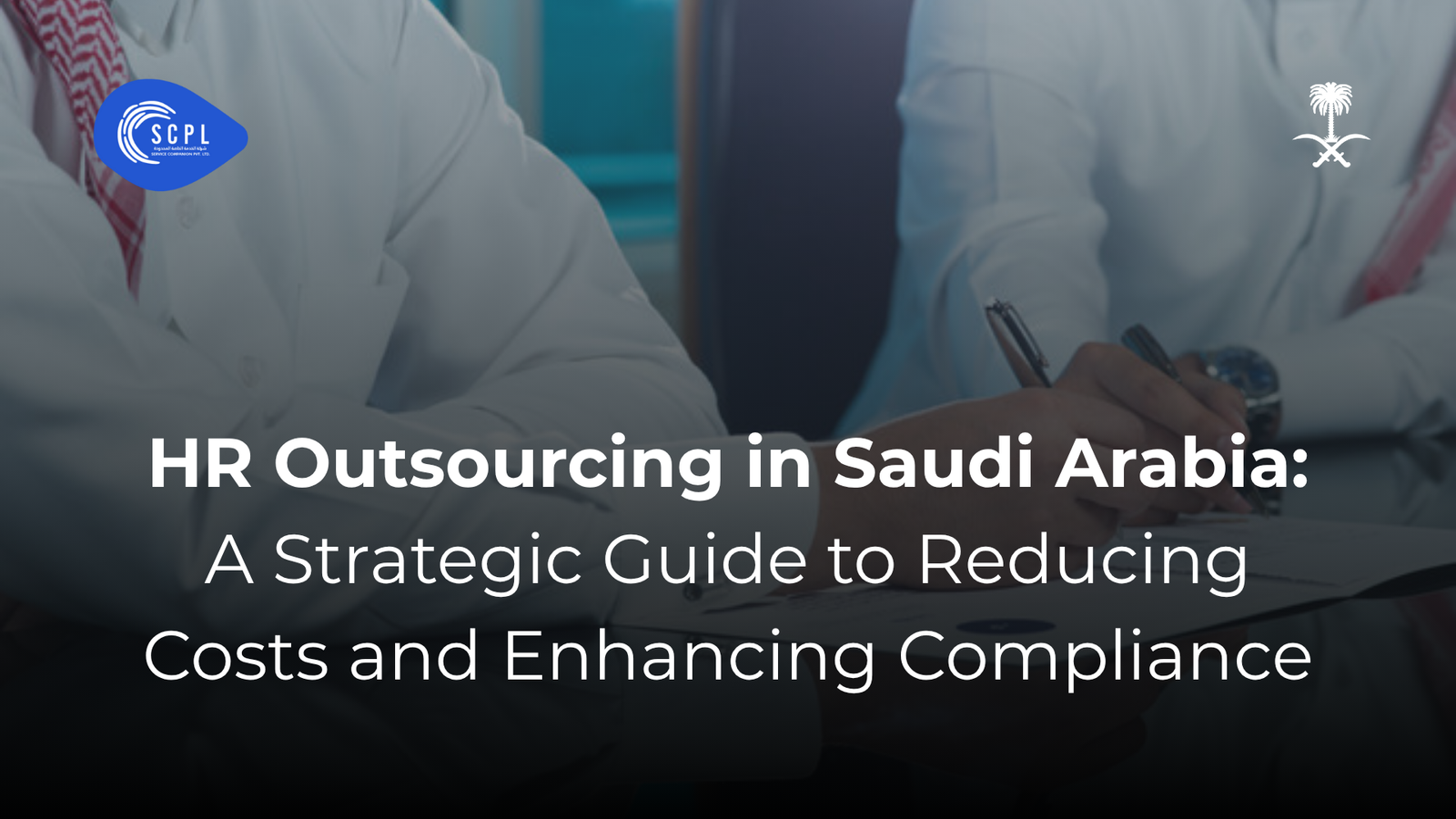Payroll Outsourcing in Saudi Arabia for SMEs: Benefits, Compliance, and How to Get It Right
Estimated Reading Time: 9 minutes
Key Takeaways
- 60%+ of Saudi SMEs are shifting to payroll outsourcing as part of digital transformation, driven by Vision 2030 and compliance requirements.
- Outsourcing reduces costs, compliance risks, and errors while delivering scalability and advanced tech capabilities.
- Key regulations include WPS, Saudization (Nitaqat), and Labor Reform Initiative—professional providers help you stay penalty-free.
- SMEs save up to 40 hours/month by outsourcing payroll and can reinvest time into growth and customer experience.
- Choose a Saudi-experienced provider with transparent pricing, secure systems, and a strong compliance track record.
Understanding Payroll Outsourcing in Saudi Arabia
Payroll outsourcing means delegating your company’s payroll processing, statutory calculations, and compliance tasks to specialized third-party experts. For SMEs in KSA, this replaces fragmented in-house processes with an external team that brings compliance rigor, speed, and accuracy—without the overhead of hiring full-time specialists.
Further reading: Explore how HR outsourcing underpins payroll success in HR Outsourcing in Saudi Arabia: Why It’s the Smarter Move for Businesses in 2025.
The Problem with In‑House Payroll
- High operational costs and fragmented tools
- Increased compliance risks and penalties
- Time-intensive manual entries and reconciliations
- Complex expatriate payroll and allowances handling
How Outsourcing Fixes It
- Streamlined workflows and automated calculations
- Expert-driven compliance with Saudi labor laws
- Scalable services for growth and seasonal demand
- Stronger data security and timely disbursements
With Vision 2030 reforms—especially WPS and Saudization—SMEs increasingly turn to outsourced payroll to reduce risk, improve speed, and free up leadership time.
For Saudization compliance, see Nitaqat Categories Guide for Employers and Nitaqat Program Saudi Arabia: Explained. For integrated platform requirements and governance, review Qiwa Compliance Services in Saudi Arabia.
Source: SourceIT HR – Payroll challenges for SMEs in Saudi Arabia
Key Benefits of Payroll Outsourcing for Saudi SMEs
1) Cost Efficiency
- No recruitment, training, or retention costs for in-house payroll specialists
- Reduced software, licensing, and maintenance expenses
- Lower overheads and predictable monthly pricing
- Pay only for what you use with scalable packages
Source: DITRC – Is payroll outsourcing right for small businesses in Saudi Arabia?
2) Compliance with Saudi Labor Laws
Stay aligned with the Wage Protection System (WPS), Saudization (Nitaqat), and the Labor Reform Initiative. Outsourcing partners continuously track regulatory updates to keep you penalty-free.
- On-time WPS file generation and reconciliation
- Accurate Nitaqat monitoring and reporting
- Documentation aligned with Qiwa and MOL requirements
Related resource: Qiwa Compliance Services in Saudi Arabia | Source: SourceIT HR
3) Enhanced Accuracy and Reliability
- Automated calculations that reduce human error
- On-time salaries and allowances every cycle
- Correct end-of-service (EOS) benefit calculations
- Consistency regardless of headcount fluctuations
Source: 6-Pence – Top payroll outsourcing trends
4) Access to Advanced Technology
- Cloud-based payroll platforms and self-service portals
- Strong data security and audit trails
- Integrations with HR, attendance, and ERP systems
- Real-time dashboards and reporting
Source: DITRC
5) Time Savings
SMEs report saving up to 40 hours per month by outsourcing payroll—time redirected to growth, customer success, and strategic projects.
- Less data entry and error correction
- Faster month-end closing
- Quicker audits and reconciliations
Source: SourceIT HR
6) Scalability and Flexibility
- Scale up/down with hiring, seasonality, or projects
- Custom packages for part-time, shift, and remote teams
- Tailored workflows for multi-branch or multi-entity structures
Why Choose Payroll Outsourcing Services in KSA?
Local expertise matters in Saudi Arabia. Providers with on-ground experience understand cultural norms, payroll calendars, banking practices, and the mix of local and expatriate requirements—delivering smoother implementation and ongoing accuracy.
- Deep know-how of MOL, GOSI, WPS, and Nitaqat requirements
- Bilingual support (Arabic/English) for employees and managers
- Aligns with Vision 2030 digital transformation goals
Case in point: A Riyadh-based retail SME reduced compliance issues by 95% within three months after switching to professional payroll services. Source: 6-Pence – Transforming payroll outsourcing
Steps to Outsource Payroll Effectively
1) Assess Your Needs
- Audit current payroll workflows and timelines
- Identify pain points (errors, delays, WPS issues)
- Estimate potential cost/time savings
- List compliance requirements (WPS, Nitaqat, Qiwa)
2) Select a Provider
- Verify KSA market experience and sector knowledge
- Check testimonials and case studies
- Review scope: payroll, WPS, EOS, GOSI, and Qiwa integrations
- Assess security, integrations, and SLAs
3) Transition Smoothly
- Plan data migration from legacy systems
- Train managers on new portals and approvals
- Define communication protocols and RACI
- Set KPIs for accuracy, timeliness, and compliance
4) Monitor Performance
- Track error rates and WPS success submissions
- Conduct periodic compliance and security audits
- Review SLAs quarterly and refine processes
- Capture employee feedback for continuous improvement
Helpful links: Qiwa Compliance Services in Saudi Arabia | Source: DITRC
Success Stories
Case Study 1: A Jeddah-based retail SME cut payroll errors by 80% within six months after outsourcing, improving employee satisfaction and reducing WPS rejections.
Case Study 2: A Riyadh tech startup scaled from 50 to 200 employees with flexible payroll services that handled rapid hiring, shift allowances, and EOS liabilities smoothly.
Choosing the Right Payroll Partner
- Ministry of Human Resources accreditation and local KSA references
- Multilingual support and dedicated account management
- Transparent, predictable pricing with no hidden fees
- Secure, cloud-based infrastructure with audit logs
- Proven track record in Saudi Arabia with case studies
Conclusion
Payroll outsourcing in Saudi Arabia gives SMEs a strategic edge: lower costs, fewer errors, stronger compliance, and the agility to scale with confidence. With Vision 2030 accelerating digitization and regulatory rigor, professional payroll management is no longer optional—it’s essential for growth-focused companies.
Action tip: Start with a quick payroll audit, map your compliance gaps (WPS, Nitaqat, Qiwa), and request a tailored outsourcing proposal with clear SLAs.
Ready to transform payroll from an administrative burden into a growth enabler? Explore providers offering a free compliance review, transparent pricing, and an implementation roadmap aligned to your business model.
Why Choose SCPL for Payroll Outsourcing in Saudi Arabia
SCPL specializes in delivering end-to-end payroll and HR operations for SMEs and growth-stage companies across KSA. We combine deep regulatory expertise with modern technology to ensure on-time, audit-ready payroll—every cycle.
How SCPL Helps
- HR Outsourcing & Payroll: Full-cycle payroll processing, WPS file creation, EOS calculations, GOSI handling, policy alignment.
- Recruitment Solutions: Rapid hiring to support scaling teams without disrupting payroll operations.
- Finance & Compliance: ZATCA registration, VAT filing, and internal controls that complement payroll governance.
- IT & Digital Solutions: Integrations with HRIS/attendance tools and secure, cloud-based workflows.
Why SCPL is the Go-To Partner
- KSA-first expertise across WPS, Nitaqat, Qiwa, and MOL processes
- Transparent SLAs, monthly reporting, and audit-ready documentation
- Bilingual support with responsive account managers
- Proven results for SMEs in retail, tech, services, and more
Get started: Book a no-obligation consultation for a free payroll and compliance audit and a tailored implementation plan.
Talk to SCPL’s payroll experts to streamline your payroll and stay compliant.
FAQ
What does payroll outsourcing cover in Saudi Arabia?
Typically salary processing, WPS file generation, EOS calculations, GOSI updates, leave and allowance management, and compliance reporting aligned with MOL and Qiwa requirements.
How much can SMEs save by outsourcing payroll?
Savings vary by size and complexity, but SMEs commonly reduce costs tied to software licenses, staffing, and penalties—plus reclaim up to 40 hours per month in admin time.
Is outsourced payroll compliant with WPS and Nitaqat?
Yes—credible providers are built around WPS file compliance, accurate employment categories, and Saudization tracking. See: Nitaqat Categories Guide for Employers and Nitaqat Program Saudi Arabia: Explained.
How is employee data kept secure?
Modern providers use encrypted, cloud-based systems with access controls, audit logs, and regular security reviews, aligned with local data governance standards.
Can outsourced payroll handle expatriate employees and EOS?
Yes—experienced partners manage complex allowance structures, visa-linked entitlements, and correct EOS calculations per Saudi labor law.
How fast can we transition to an outsourced model?
Depending on readiness and data quality, most SMEs transition within 2–6 weeks, including migration, parallel runs, and training.
What should we look for in SLAs?
Clear commitments on accuracy, processing timelines, support response, WPS submission success rate, data security, and reporting cadence.
Get a Free Consultation
Transform payroll into a compliant, efficient, and scalable function. Book a free consultation and receive a tailored roadmap for your SME.










